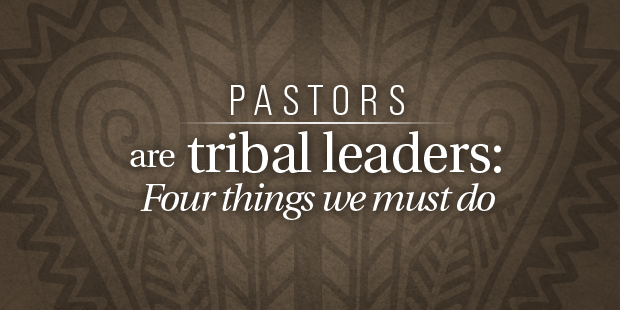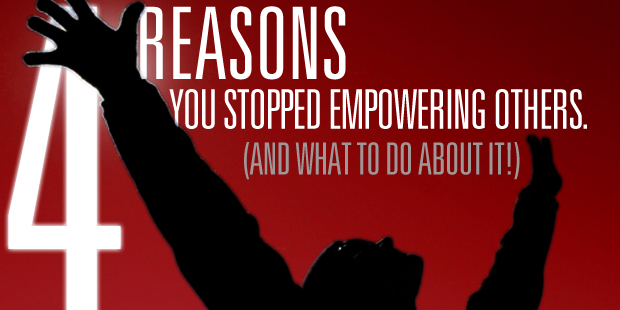
Stop Trying to Reach Most People
You must be an active subscriber to view this premium content. Subscribe or Login.

Tags: Duplicatable Process, Evangelism, Leadership Engine, Seth, Tribes, Will Mancini

You must be an active subscriber to view this premium content. Subscribe or Login.

Tags: Duplicatable Process, Evangelism, Leadership Engine, Seth, Tribes, Will Mancini



In this fourth post on Take Seth Godin to Church I want to focus on Tribal Movement. Consider using the questions in these posts for staff or volunteer meetings in the month of December. Use the Advent season to see Jesus as the coming founder of a redemptive tribe called The Church. The previous two posts dealt with tribal passion and tribal leadership.
In Tribes, Godin references Senator Bill Bradley who unpacks the anatomy of a movement with three essentials:
Here are some questions for each essential:
Future-building Narratives
Note: Creation stories and signature stories are discussed further in Church Unique.
Leader-Follower Connections
Doing Without Limits
Missed the first parts of this series? Read them here: Part 1; Part 2; Part 3. Read Part 5 here.

Tags: Leadership Engine, Movement, Seth Godin, Tribes, Will Mancini



Today I want to apply Godin’s perspective about leading a tribe, to Jesus. As we do, I invite you to allow the life of Jesus shape your own identity as a leader.
You may wonder why Godin’s perspective is so valuable here. Although he doesn’t sit in the academy or carry credentials of a theologian, he is a language artist who knows people and knows the times.
Here are four ways pastors can model Jesus. Each assertion is connected to a Godin quote and followed by some challenging questions.
1:Embrace change-making.
“Management is about manipulating resources to get a known job done. Leadership, on the other hand, is about creating change that you believe in.”
2: Repent of ‘organizational loves.’
“When you fall in love with the system, you loose the ability to grow.”
3: Initiate something.
“Initiative=Happiness”
4: Commit before its successful.
“If your organization requires success before commitment, it will never have either. A big part of leadership is the ability to stick with the dream for a long time. Long enough that the critics realize that your going to get there one way or another…so they follow.”
I have ordered these quotes intentionally. Reread them again to feel the progression.
Think about Jesus’ context as a religious factory. Think about how Jesus daily ordered his steps around his Father’s voice and mission. Seth’s definition of management can easily speak to the problems of church in America.
Jesus created waves for people who didn’t just create systems as tools but sustained systems in order to nourish their identity. What sytems do you have as a leader and what is your relationship to them? Do they serve you or do you serve them? How conscious are you of your system?
There is always status quo. What is it right now for you? I love the phrase “initiative = happiness.” It is certainly not a statement of truth, but an overstatement for insight’s sake. Before a leaders is defined by anything, he or she is defined by initiative. Hebrews tells us that Jesus endured the cross for the joy set before him. Now think of how that joy and the culminating event of the cross was preceded by literally thousands of moments of initiative that were bold, gutsy, and downright heretical. Start with mind-blowing act incarnation. Go to the norm-shredding engagement with the Samaritan woman. Take a boat ride for a near death experience and an indelible lesson in faith. I think pastors need a wake-up call to follow Jesus footsteps as radical initiators.
The final Godin quote above rocks me to the core when I think of the church. We miss dreaming large, risking big and unleashing our imaginations because we want success before commitment. Maybe the best next step to fixing this dynamic in our organizations is to name it and identify it in our own lives.
Let’s follow Jesus with greater clarity, conviction and courage. Let’s keep moving away from church as program factory toward church as redemptive tribe.
Read Parts 1 and 2 of this series here and here; Read Part 4 here.

Tags: Leadership Engine, Seth Godin, Tribal Leaders, Tribes, Will Mancini



Here are my three favorite Seth Godin quotes pertaining to tribal passion:
“Do you believe in what you do? Every day? It turns out that belief happens to be a brilliant strategy. Can you imagine Steve Jobs showing up for the paycheck? It’s nice to get paid, its essential to believe.”
“Caring is the key emotion at the center of the tribe… Many organizations are unable to answer the question, “Who cares?” because in fact, no one really does. If you don’t care – really and deeply care – then you can’t possibly lead.“
“The organizations of the future are filled with smart, fast, flexible people on mission. The thing is, that requires leadership.”
Because every leader in your church can be placed on a continuum of emotional ownership, consider these questions for team discussion:
Read Part 1 of the series here; read part 3 of the series here.

Tags: Leadership Engine, Passion, Seth Godin, Tribes, Will Mancini



You’ve probably been exposed to Seth Godin’s book, Tribes. But have you integrated his ideas into your thinking and leadership at church?
Integrating new learning for me always happens in stages. For example:
I share these thoughts regarding Seth Godin’s book because it is easy to get stuck in the emotional satisfaction of having been exposed to the idea without applying it. For example, when I met Seth hanging out backstage at Catalyst in 2008, I could proudly talk about the ideas in his book, but I had not read it. It took me another six months before I did.
The bottom line: I think Tribes is a book worth engaging as church leaders. And I would love to help you get past a surface exposure. In fact you may want to grab a free audio copy or a free copy of his companion tool.
To help you I have prepared some future posts with my favorite quotes from the book and questions for team discussion.
My dominant thought in this series is “How are you managing a program factory (whether overtly or sub-consciously) in the name of church, rather than leading a redemptive tribe in the name of Jesus?”
Take a look at Part 2 of this series here.

Tags: Leadership Engine, Seth Godin, Tribes, Will Mancini



Someone once asked “Are you going through life or are you growing through life?” I love that question. Right now I am going through significant transition in how I lead. I have never been more motivated by the maxim, “If you are doing what you did last year, you’re not growing.”
One of the greatest growth challenges for any leader is the ability to empower and release others. While I constantly aspire to raise up others, I am consistently amazed at the conditions of my heart that hold me back. Specifically there are four internal barriers that I must consciously work through. Maybe one of these is stopping you right now.
Why do we stop empowering others?
#1 Empowerment increases the scope of unknown ministry outcomes.
As soon as you give some else the steering wheel, you don’t know which road they are going to take. How is your own need of control keeping you from a step of delegation? How can you develop your faith and take a calculated risk with one of your leaders?
#2 Empowerment requires a sacrifice of short-term ministry efficiency.
Chances are, you are not only good at what you do, you are also fast! And when Sunday’s a coming you don’t have time to develop someone else. WRONG! You have probably waited to long. The current need for expediency is not only unhealthy, its also getting in the way of mission expansion and ministry multiplication. Is it time for you to slow down in order to speed up?
#3 Empowerment requires giving away authority that previously provided the basis of personal ministry success.
Okay, I know this one really meddles. But it’s true in my life. Over the years its easy to get addicted to the minor, everyday accolades and at-a-boys that people bring. Is it possible for these unseen, subversive, “feel-goods” to stop us from reproducing ourselves? More often that we realize, I think. In what area of your ministry can you starve your ego and get someone of the bench and into the game?
#4 Empowerment necessitates close support and authentic community with other leaders.
The more successful you are the more demands come crashing in. The more successful you are the more people want time with you. If you’re not careful the very heartbeat of leadership –influences others through relationships– gets short circuited through isolation. Sometimes we are just too tired to be close enough when it comes to empowering others. Where will the love that called you into the ministry need to be applied again? Who can you develop that would love to spend time with you?
So what do you do about these challenges?
I must continually do heart-building exercises to to keep my empowerment muscles in shape. In fact I create a work-out through questions that was published in a book I wrote with Aubrey Malphurs. I thought you might enjoy a free copy, as an opportunity to refresh your own commitment to empowering others. The summary chart above gives you an appetizer of the chapters content, questions and exercises.

Tags: Authority, Community, Empowerment, Leadership Engine, Sacrifice, Uncertainty, Will Mancini



In honor of John Maxwell, who could come up with 1700 leadership laws, here are 17 of mine.
1. Tough decisions only get tougher.
You are only one decision away from a totally different life. I believe that. One change in diet or exercise can radically change your health status. One change in spiritual disciplines can open up new dimensions of grace and power. One change in a relationship can lead to intimacy. What do you need to stop doing or start doing? Your destiny isn’t a mystery. Your destiny is the cumulative decisions you make. What tough decision do you need to make? What are you waiting for?
2. Negativity is cancer. Kill it or it will kill you.
I am wide open to rebuke. Constructive criticism is the avenue to excellence. But I have zero tolerance for negativity. How do you stop negativity? Positivity. One of the ways we do that at NCC is sharing wins before every meeting. It reminds us that God is moving and we get to be part of it. Sharing wins creates positive energy. And it’s positivity that gives us the energy we need to deal with negativity. Don’t let one staff member, one board member or one small group member hijack what God has called you to captain.
3. No Margin = No Vision.
If you try to be all things to all people you’ll become nothing to nobody. I have focus days and meetings days. I meet with people on my meeting days. I meet with God on my focus days. I need days where there is nothing on my agenda so I can read or write, dream or rest. The lack of margin will kill your creativity. If you don’t control your calendar your calendar will control you. It starts with establishing boundaries. Then you need to guard against the Messiah complex. You can’t save everybody. In fact, you can’t save anybody. You aren’t doing anybody any favors if you make yourself available to everybody all the time. Take a break. Take a day off. Take a vacation. Take a sabbatical.
4. If you listen to God people will listen to you.
People don’t need a word from me. They need a word from God. I want my messages to have a prophetic edge to them and that happens when I get into the presence of God. The presence of God is where problems are solved and dreams are conceived. Get in the presence of God. At the end of the day, I am nothing without God’s anointing. I need to keep an ear tuned to the people, but more importantly, I need to keep an ear tuned to the still small voice of the Holy Spirit.
5. Don’t let your budget determine your vision.
Too often we allow our budget to determine our vision instead of allowing vision to determine our budget. That doesn’t mean you hire lots of staff you’ll need to fire. It doesn’t mean you let expenses get out of control. It does mean that you hold tenaciously to this simple truth: when God gives a vision He makes provision. You need to budget in a way that gives God the room to do miracles. And make doubly sure that you have vision beyond your resources.
6. Everything is an experiment
One of the greatest dangers we face as leaders is inattentional blindness. We stop noticing our environment. When that happens we lose creativity, we lose excellence. You’ve got to make some mistakes! You’ve got to take some risks. Over time there is a cognitive shift from right-brain to left-brain: we stop doing ministry out of imagination and start doing it out of memory. Do something different. After all, if you want God to do something new then you can’t keep doing the same old thing.
7. If your life is interesting your messages will be interesting.
The reason why many of our messages lack impact is because they aren’t interesting and they aren’t interesting because we’re not interesting. Get a life! You need a life outside of church. Go on an adventure. Take up a hobby. Learn something new. If your life is boring, chances are that your sermons will be too.
8. Don’t just dream big. Think long.
We tend to overestimate what we can accomplish in 2 years, but we underestimate what we can accomplish in ten years. Zoom out. Your mantra shouldn’t be “as soon as possible.” It should be “as long as it takes.” Your vision isn’t just too small. It’s too short.
9. Put your family first
At the end of the day, I want to be famous in my home. God has not called me to sacrifice my family on the altar of ministry. They deserve my best. Don’t let work become home and home become work. Success for me is my kids growing up to love God with all of their heart, soul, mind, and strength. Your youth pastor isn’t called to disciple your kids. You are. You’ll make mistakes, but the secret to successful parenting is this: keep trying, keep forgiving, keep loving.
10. Who you’re becoming is more important than what you’re doing.
Don’t worry about church growth. Focus on personal growth and church growth will take care of itself. Stay humble. Stay hungry. Make sure you’re doing ministry out of the overflow of what God is doing in your own heart, your own life. Remember that who you are is more important than what you do. People over programs. People over portfolios.
11. Work like it depends on you. Pray like it depends on God.
Failing to plan is planning to fail. So plan away. And loving God with all of your strength = a great work ethic. So work hard. But I believe in prayerstorming more than brainstorming. Prayer is the difference between you fighting for God and God fighting for you. If work is the engine of success, then prayer is the high-octane fuel.
12. If you have something to say, say it.
My greatest regret looking back over fifteen years of preaching? Simple: I wish I had communicated the gospel more consistently and more clearly. I should have said it and said it again and again and again. You cannot over-communicate. Say it. Then say it over and over again. Say it in different ways. As a multi-site church we have a mantra: when in doubt, CC. Another mantra is this: don’t internalize, verbalize. I don’t want to hear about issues when they’ve become full-blown problems with collateral damage. Internalizing issues only makes them worse. And I don’t want to hear it from a third-party. If you have something to say, say it.
13. Be Yourself
Don’t try to be who you’re not. I’m not trying to be a pastor anymore. I’m trying to be myself. I’m certainly trying to grow in maturity and gifting, but I’m not worried about who I’m not. Abraham Lincoln said, “You can please all of the people some of the time, some of the people all of the time, but you can’t please all the people all of the time.” Uniformity isn’t the goal. Unity is. That also doesn’t mean unanimous. According to the categorization of adopters, 16% of the people you lead will be resisters. It doesn’t matter if you come down with stone tablets from Mount Sinai. Even Jesus lost one of his disciples.
14. Don’t live for the applause of people.
My philosophy of ministry is Matthew 10:16: Be shrewd as a snake and innocent as a dove. You’ve got to beat the enemy at his own game and that takes creativity. But you also need to do the right things for the right reasons and that takes integrity. Don’t worry about being politically correct. Be biblically correct. Most of my reward has been forfeited because I was more concerned about “my kingdom” than “thy kingdom.” I was living for the applause of people. To get to the point where you genuinely care for people you have to get to the point where you don’t care how they feel about you. Live for the applause of nail-scarred hands.
15. I’d rather have one God idea than a thousand good ideas.
Let me say it again: get in the presence of God. Those new ideas are discovered in the context of prayer and fasting and nowhere else. Good ideas are good, but God ideas change the course of history. There are ways of doing church that no one has thought of yet. Here’s a formula: change of pace + change of place = change of perspective. Sometimes you just need to get out of your routine.
16. You cannot break the law of sowing and reaping.
If you want to receive honor then you need to give honor. If you want a generous culture, then you’ve got to give sacrificially. Set the example. Set the bar. At the end of the day, the strengths and weaknesses of any organization mirror the strengths and weaknesses of the leadership. Take responsibility for it. Then take action. For better or for worse, you cannot break the law of sowing and reaping.
17. Enjoy the journey
If you are too focused on the future you’ll fall into the when/then syndrome. When we have “this many people” or “this much money” I’ll be able to enjoy leadership. No you won’t. You need to enjoy every stage. For the record, it will only get harder. It will only get more complicated. Sin will complicate your life in negative ways. Blessings will complicate your life in positive ways. When I got married it complicated my life. Praise God. We have three complications named Parker, Summer, and Josiah. I can’t imagine life without those complications. So count the cost and keep on keeping on.
Read more from Mark here.

Tags: Leader, Leadership Engine, Mark Batterson, Vision Clarity



This week I had a chance to share some coaching pointers with some great leaders at the New Thing Network. As the church is changing, so leaders must change and the coaching questions we used to use may not fit the life, tensions, or reality that many leaders now face. I coach to incarnation not just proclamation. I coach to community and cultural engagement not just tasks of running a church of weekend Sunday experience. Every leader gets lost and blind in their own world and sometimes the most powerful way to influence leaders is by asking the right questions. Jesus did this and it changed history so consider browsing through this list and make some suggestions. Someday this might be a great list that we can all share. I am giving you four key aspects of a leaders life that must be coached for a true missionally incarnational leader must be: Deep in Character, Clear in Calling, Culturally Savvy, and Able to Lead Inclusive Community.
DEEP IN CHARACTER
CLEAR IN CALLING
Here you are coaching through the intersection of real life and divine calling and roles.
CULTURALLY SAVVY
Here you are coaching for their ability to engage the lost culture with the Gospel.
ABLE TO LEAD COMMUNITY
Here you are coaching for their ability to lead people toward God and his church.
Read more from Hugh here.

Tags: Character, Clarity, Community, Culture, Hugh Halter, Leadership Engine



Frank J. Barrett, a professor of management and global public policy at the Naval Postgraduate School in Monterey, Calif., is also a jazz pianist who has led his own trios and quartets and traveled with the Tommy Dorsey orchestra. In his new book, Yes to the Mess: Surprising Leadership Lessons from Jazz, Barrett riffs on the themes that improvisational jazz and enlightened corporate management have in common. The book is breezy and fun, and offers vivid real-life stories from Barrett’s musical career and observations about some jazz greats, all juxtaposed with anecdotes from the business world.
Here are the lessons he imparts:
1. Improvise through the chaos.
Barrett tells about playing at a club in Cleveland with a jazz quartet whose members he didn’t know, including a singer he had never accompanied. In the middle of a bebop tune, it became clear the singer hardly knew the song. As the saxophone stopped playing and the other players balked, Barrett persisted, hitting a few notes and then the original melody. Soon the sax jumped back in and the singer started making up words. “Within a few seconds, we were grooving again,” he writes.
That tale leads him to the story of GE’s experience during the financial crisis, when the company’s hugely profitable financial arm, GE Capital, suddenly hit a wall. GE wound up improvising with its other businesses, from manufacturing light bulbs to jet engines. The company recovered on the strength of its ability to adjust to change.
Read the rest of the lessons in the full story here.

Tags: Change, Frank Barrett, Jazz, Leadership Engine, Susan Adams



Five years into North Coast Church, Founding and Senior Pastor Larry Osborne realized the programmed discipleship classes his Vista, Calif., church was teaching weren’t making disciples. In 1985, he implemented the church’s small group system, now one of the largest small group ministries in the nation, with 91 percent of the 8,000-plus attendees involved in a weekly Growth Group. In this Q&A, Osborne shares about the church’s shift from information to relationships and the “bur in his saddle” these days.
Last year you tweeted: “Discipleship is a rather simple concept: Obedience. Why do we make it so esoteric and complex?” How have we made discipleship complex?
The Greek word for disciple, mathetes, simply means follower. That includes people at the front of the line, in the middle, and at the back of the line. And there are good followers and not so good followers. But we have tended to confuse leadership with discipleship. I hear people over and over say, “Well, I define a disciple as … ,” and I have this sense that we probably ought to let Jesus define a disciple. He used the word mathetes. And in His definition of a disciple, He included some people who weren’t exactly stellar in all the things we think a disciple should do and be.
Jesus talked about obedience: If you love me, you’ll obey me. John talked about Here’s how to know that you know me—we will obey Him. And obedience isn’t perfection; it’s obeying the light we have. According to Prov. 4:18, the light gets brighter the more we follow the light we have. But we tend to look at maturity. We love the lost, we love the baby Christian and the on-fire, charge-the-hill Christian. But anybody struggling, the smoldering wick or bruised reed, we want to snuff it out or break it off.
So that has been a bur in my saddle as I’m watching the pendulum swing from an easy “believism” to raising the bar and thinning the herd. Essentially, we’re going back to the 1930s and ‘40s when my mom became a Christian. She grew up afraid of full commitment because she was always told, “If you do that, you’ll end up in Africa. The Christians take the hard path.”
What impact does/will this have on church leaders and their people?
It ends up in a lot of gift projection—trying to make people into us instead of what God’s called them to be. It leads to absolute lack of patience and bearing with one another. Basically, we become what I call an accidental Pharisee. That’s pretty much what the Pharisees did—you were either this or you weren’t. It was a very clear black and white line. We tend to take Jesus’ commands to an individual and make them into a command everybody must follow.
North Coast’s mission statement is Making Disciples in a Healthy Environment. How have you simplified this concept?
We’ve always avoided classes and a set of hoops to jump through or even disciplines to practice. For 27 years, we’ve tried to get people into weekly community groups because we believe that all the “one anothers” of Scripture and the things we’re supposed to obey are going to show up in community, whereas in a class all you’re doing is taking notes. There’s not a lab to live it out.
We’ve always had more than 80 percent of attendees involved. I think this year, we’re at 91 percent of weekend attendance. We believe everyone should be in a weekly community gathering of some sort. In our internal meetings, everything is about creating community. We’re very clear on what our core is—worship, teaching, community and mission. Everything else is just an ancillary offering.
Take us back 27 years. What was North Coast doing before small groups?
We did the typical classes. I led these things called Timothy Teams that I walked a bunch of men through, and they had notebooks full of information. But they weren’t necessarily treating their wives and children with any more biblical obedience and godliness. It was that way across the board. I looked around at our people, and they were becoming more rigid and prideful, and they weren’t really becoming more obedient. I just didn’t see a lessening of sin corresponding to an increase in information.
In 1985, I realized that people didn’t need more information and class time; they needed more lab work. The people who had a lot of information weren’t living it out. That’s when we decided to stop the classes and get people into small groups, which we consider the hub of our ministry.
What steps did you take to make the shift from information to relationships and secure buy-in from both church leadership and the congregation?
I got the approval of the elder board and informed the congregation we were going to cancel some of our “come and fill your notebook” classes and that we were going to get into small groups where we could live out our faith and talk about the application of what we heard on the weekend. I said we were no longer going to do classes; we were going to do life.
How did you know if this shift was effective at making disciples?
When the church was small, you could measure effectiveness anecdotally. Now we measure hard numbers. But in the early days, we started watching for community to take place. Were people expecting the organized church to minister to them in a crisis, or was the small group picking up the ball? Were people expecting the church as an organization to do things out in the community? Or were they getting out and serving with each other.
The other thing we tried to measure, again anecdotally, was sin because I can’t measure righteousness. You can fulfill all the spiritual disciplines and be in the middle of an affair. Three of my six mentors were Type a, jump-through-every-discipleship-hoop personalities, and three of them had affairs. That’s when I began to say all this little checklist stuff isn’t creating godly people. So I came to the conclusion that I can’t measure righteousness; I can measure sin. A doctor can’t tell me I’m healthy. He can say there’s no discernible illness. So what I look for is sin. That’s the sign there’s something wrong. But I don’t want artificial measurements of righteousness—did you read your Bible every day, did you talk to a non-Christian about your faith, did you journal, did you go out and do community service? I’ve seen too many people in the middle of abusive relationships, affairs, addicted to porn, etc., that were dong all these things. They were jumping through the hoops. But the Gospel wasn’t taking root.

Tags: Discipleship, Larry Osborne, Leadership, Leadership Engine, North Coast Church
Josh — 05/02/17 4:17 am
Always great to learn from the journey of others. Thanks
Renee Haupt — 11/28/12 1:51 pm
Spot on!
Tony — 11/02/12 1:25 pm
I really appreciate this concept of discipleship as an active, obedient living concept, not just a learning/absorbing posture. I would be curious about the specific distinction that you make between a leader and a disciple. Is leader a subset of disciple, as in all leaders are disciples, but not all disciples are leaders? Or simply defining as leader as someone with more motivational, forward movement-oriented gifts? Or is it something completely different?

